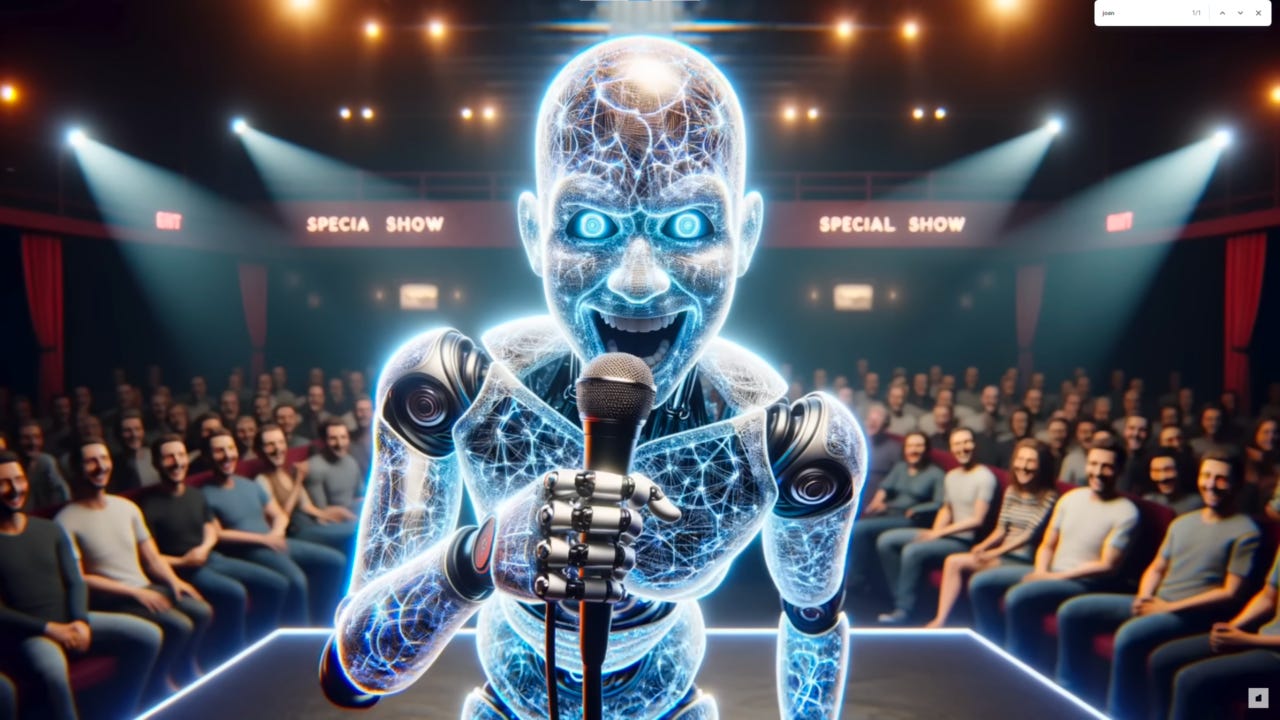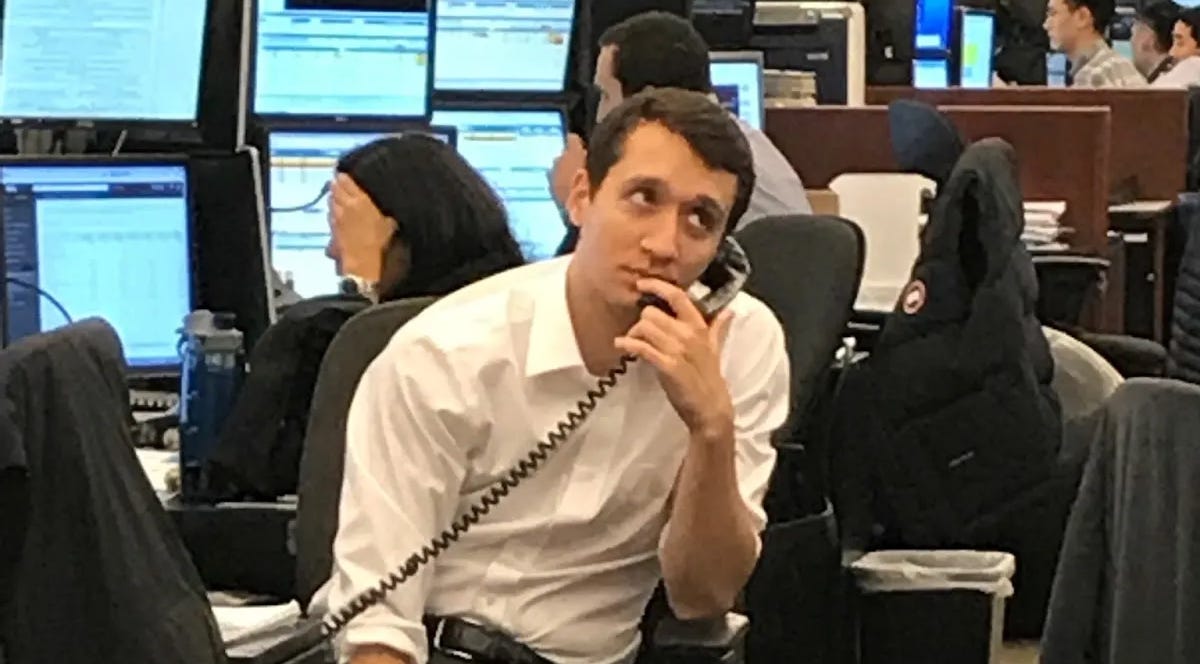Since ChatGPT took the world by storm, there’s been endless debate and speculation about the role that AI will play in our society: whether it will be a force for good, a force for evil, or just a forcing function for new overnight experts to start writing a blog.
As the field of AI continues to advance, the companies at the center of it all are trying to build the next big thing: AI systems that are as smart or smarter than humans. They call this Artificial General Intelligence (AGI), and though the term lacks a concrete definition, it’s generally considered to be the state at which AI is indistinguishable from human intelligence, capable of conjuring any thought or insight that a human can.
On the path to AGI (and imminent doom), there are a few remaining milestones. If ChatGPT has already passed the first one by proving it can communicate in a convincingly human way — that is, it has passed the “Turing Test”— perhaps the next sign that AI has evolved beyond pattern recognition and towards producing original thought will be if AI can make humans laugh. I call this the “Ansari Assessment.”
AI as Comedian
H/T Dudesy Podcast
In researching this piece, I discovered there has already been a lot of ink spilled on the topic of whether or not AI will ever produce original comedy. For example, Freakonomics spoke to a Columbia University AI Researcher training neural networks on headlines from The Onion, despite her conviction that “making another person sincerely laugh out loud feels so human.” Meanwhile, The New York Times’ comedy critic covered how comedians and AI are already colliding on stage via roast battles, although he concluded that “comedy by robots is more likely to succeed as a tool behind the scenes.” Lastly, The Hollywood Reporter weighed in on what the new technology might mean for comedy as a profession, and determined that the central question facing film studios is not whether or not they can replace their writers with AI, but rather “how mediocre are [they] OK with [their] comedy being?” All of the articles linked above were great reads, and they all sort of reach the same conclusion: the future of AI comedy is uncertain but it’s definitely not here yet.
Meanwhile, I’m more firmly in the camp that high-quality, AI-generated comedy is inevitable, and that it will arrive faster than expected. From my perspective, comedy is a carefully crafted structure in disguise, leaning heavily on mechanisms that lull audiences into patterns and then subvert their expectations. While comedy often feels organic, it is actually comprised of atomic units such as bits, premises, punchlines, and callbacks that have all been meticulously arranged and rearranged in order to unlock a laugh, and I believe this inherent structure makes it ripe for AI to solve. I agree with Tony Veale, researcher and noted AI-comedy bull, who told The New York Times that AI will learn just as comedians have in the past. “Many comedians, such as Eddie Murphy and Jerry Seinfeld, trained themselves by repeatedly listening to and repeating Bill Cosby’s early comedy albums,” says Veale, and “we all learn from those we aim to emulate and transcend.”
Marc Andreessen, venture capitalist and Twitter comedian, offered a different take on the role AI may play in entertainment during an episode of The Ben and Marc Show. During the episode, he compared the potential for AI to advance writing and filmmaking in a manner akin to how software like Logic has advanced music-making and producing. He said:
“If you’re a talented screenwriter, within some number of years…you’re going to have a tool on your laptop that…you write your script [and] the AI is rendering the movie. It’s rendering the thing, doing the voices, putting in the actors, doing the scenes, generating everything…Anyone with writing talent will be able to make movies on their laptop.”
I found Marc’s slant on AI’s near term role in entertainment to be highly plausible and intriguing, so I decided to try out the current slate of state of the art tools to see just how far away Marc’s vision of the future was. Specifically, I spent this morning daisy-chaining tools from generative AI startups like ElevenLabs and RunwayML, allowing me to generate videos from text prompts and clone actors’ voices to enact my written scripts. Given that this blog is scheduled to be published shortly ahead of the premiere of one of my favorite comedy shows’ final season, I couldn’t resist writing my own scene. $11 dollars later, and here’s what I got:
When it comes to AI rendered comedy, perhaps we need to… curb our enthusiasm? (sorry)
Pretty, pretty, pretty bad. To be fair, I am new to these products, so undoubtedly someone more capable could probably create a better replica of this kind of classic Curb scenario. I considered further refinement of mine, but after reading how litigious comedians (or their families) can be when it comes to AI, I decided I’d better quit while I was ahead.
So, yes, I have no doubt that producing comedy with AI is inevitable; however, as companies all strive to build AGI, I think we’re missing the point when it comes to entertainment. I think the better question—and potentially bigger opportunity—is to reverse the problem entirely: can humans make AI laugh?
AI as Audience
To take a step back, I’ve always thought the comedy world and the tech world were more similar than what meets the eye. Whether it was how honing standup material resembled testing prototypes to gain initial feedback, how comedians A/B test different punchlines like marketers to see which garners bigger laughs, or the fact that in either world being a “hack” is generally bad — there seemed to be no shortage of parallels.
When I was in college, I spent a lot of time writing, performing, and thinking about comedy, spending hours trying to tweak the wordings of specific phrases. After college, I would moonlight as a standup comedian after finishing up my day as a trader on Wall St, where I found that 1) the laughs were harder to come by once you’d left your college bubble, and 2) the process of hitting open mics was incredibly grueling. To make the 5:30pm beginner-friendly mic located in the basement of a Mexican restaurant in Long Island City, I had to race out the door right by 4:45 and hoof it uptown to make it on time to toss my name in the bucket.
Me circa 2018, watching the clock, trying to come up with material
The 40-minute commute was actually the quick part, as getting up on stage would take several more grueling hours of listening to the other acts while moderating your intake of Pacificos until your time slot came around. The bucket was typically overflowing with names of other performers, and the host in charge would simply call their friends up first under the pretense that everything was random (honestly, I get it). Suffice it to say it took forever, and the reward for your patience was the opportunity to perform three minutes of material in front of a relatively disinterested crowd, who at best weren’t listening and at worst were actively rooting against you.
Most grizzled comedians will argue that the agony of open mics is all part of paying your dues, but any product manager would note that if the entire point of an open mic is to practice and get better, then the way the feedback mechanism is designed is terrible. There was so much friction and time required to even get on the stage—and all for very little instructive value in return. The juice, as they say, wasn’t worth the squeeze. As a result, I eventually stopped going to these mics and instead pursued the other canonical path of many comedians: I applied to grad school (ok, it was business school).
In business school, I learned of a website called LeetCode. LeetCode is an online platform for software engineers to practice coding problems they are likely to face during actual interviews for Google, Facebook, Netflix and other top companies. To me, LeetCode was an instant feedback loop and a great way to hone one’s craft as an engineer—just log on to your computer, grind, and profit. Given how I blamed my failed standup ambitions on the crappy experience of open mics (since surely the material wasn’t at fault…), I viewed LeetCode as the clear solution to all my problems. I had long wished there was a way I could just log on to my computer, grind on my standup sets, and perhaps even profit.
As a result, in business school, I set out to build a startup that was LeetCode for stand up comedians.
I called it Stagetime.
People hated it.
A sizzle reel for an MVP of Stagetime called “The Vid Chat Mic”
And, sure, both the idea and its execution were tragically flawed. Though it was more convenient to log on to a mic than to attend one in the real world, Stagetime failed to recreate the collegial atmosphere of an actual mic, and many felt that the whole thing felt wrong. As one comic put it, “this mic really has a ‘preparing for an AP test’ vibe.”
A Stagetime virtual show. Fun fact: the performing comedian would later become one of Vulture’s “The Comedian’s You Should and Will Know in 2023.”
Stagetime would eventually die, but I would be lying if I said I didn’t still believe the idea had potential. Despite the naysayers, the true reason Stagetime failed was because the audience laughter was really difficult to recreate virtually. Even when the audience was “mic on,” the laughter was so delayed due to streaming latency that it interfered with the comedian’s timing and did not actually create the feedback loop it was intended to provide.
Now, advances in generative AI make me believe that Stagetime—or Stagetime 2.0— is today more possible than ever. The promise of AI is having an on-demand tutor, coach, or copilot at your fingertips, something that can readily unblock you and provide instant feedback to get you closer to your goal. Therefore, I think the most exciting opportunity for AI in comedy is to see if it can make a great audience. Rather than training it to tell jokes, researchers should train AI to recognize jokes, and let out a friendly chuckle or loud guffaw accordingly.
When the Hollywood actors and writers went on strike in 2023, SAG-AFTRA President Fran Drescher decried AI as “an existential threat to creative professions,” but I disagree. I think AI will be a force for good in entertainment writ large, and instead of replacing creatives, I believe it will grow the number of creatives by helping individuals hone their crafts more quickly and provide the necessary infrastructure to make pursuing a creative profession more feasible than it is today.
Ultimately, I do not believe AI will lead to fewer writers, actors, and comedians…but I do believe it might lead to fewer investment bankers.
Special thanks to my wife Uttara for the thoughtful edits and for always attending my virtual open mics :)






